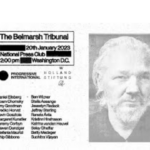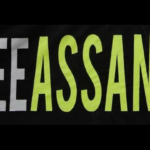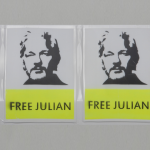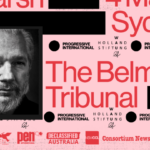Aussie Politicians Join International Calls for Assange’s Release
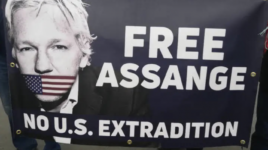
Letters of support are pouring in for Julian Assange on the anniversary of his fourth year behind bars in Belmarsh prison in the UK, but the hypocrisy of Australian politicians at this time shouldn’t go unnoticed.
In the US this week, several lawmakers have co-signed and sent a letter to the nation’s Federal Attorney General Merrick Garland calling on the criminal charges against Julian Assange to be withdrawn.
Mounting pressure on the US to drop charges
The letter states:
“The prosecution of Mr. Assange marks the first time in U.S. history that a publisher of truthful information has been indicted under the Espionage Act.”
It goes on to warn how a conviction on these charges would change the media and political landscape of the country for ever:
“The prosecution of Mr. Assange, if successful, not only sets a legal precedent whereby journalists or publishers can be prosecuted, but a political one as well.
In the future the New York Times or Washington Post could be prosecuted when they publish important stories based on classified information. Or, just as dangerous for democracy, they may refrain from publishing such stories for fear of prosecution.”
Parliamentarians in the UK, Brazil, and Mexico have already signed and sent similar letters Mr Garland, emphasising the global implications of this case – the most significant of which are reduced press freedom and the implications for democracy.
Australian hypocrisy
Locally, 48 Australian MPs and senators have also penned a letter and are each emphatic that the pursuit of the WikiLeaks founder will ‘set a dangerous precedent’.
Yet, somehow it seems a little disingenuous that 48 Australian MPs have joined calls to stop the lawsuit, at this, the eleventh hour, considering that for very many years Australian governments have maintained a staunch position with regard to Assange, making consulate services available to him but failing to take the matter further and offer any political intervention that could possibly have had an impact on the case before it got this far.
Time and again, a succession of foreign affairs ministers, the latest being Penny Wong, simply explain that there are “limits to what diplomacy could achieve.”
The Australian letter is an initiative of independent MP Andrew Wilkie, who co-chairs the Parliamentary Friends of Julian Assange Group. Mr Wilkie has stated that “This is no small matter and must not be dismissed.”
“Nor should it be ignored that the outpouring of political concern spans the political spectrum and is based on a diverse range of reasons.”
Where’s the political solidarity for David McBride?
And yet … interestingly, Australian politicians appear unable to find such solidarity on the issue of David McBride, who is still facing prosecution by the Australian Federal Government for leaking information about the immoral and potentially illegal actions of some SAS soldiers in Afghanistan – information which has since it’s leak been supported by information published in the Brereton Report which was released in 2020, and to some degree, also the arrest of war veteran Oliver Schulz, who has been charged with the international war crime of wilful killing under Australian law.
While Mr Schultz remains innocent until proven guilty in a court of law, a joint investigation between the Office of the Special Investigator and the Australian Federal Police uncovered enough evidence to make an arrest, and the Department of Public Prosecutions believed this evidence was appropriate for considering the matter worthy of prosecuting.
The recent Ben Roberts-Smith defamation trial also heard evidence of atrocities committed by Australian soldiers in Afghanistan.
The Julian Assange case is not dissimilar. Both men have found themselves being prosecuted for disseminating information which they believed was in the public interest.
Instead of being protected for whistleblowing, both have been charged with very serious offences, despite the fact that the actual public appetite for both prosecutions is, at best, minimal.
Whistleblowers face the prospect of decades behind bars
David McBride will face a trial by jury on five charges, including the unauthorised disclosure of information, theft of commonwealth property and breaching the Defence Act in the coming months – a court date has not yet been set.
Julian Assange lost his lengthy battle in the British courts to avoid extradition to the US, and faces imminent deportation.
The question now is whether or not the US will be able to sustain its position in the face of ongoing global condemnation and mounting pressure to drop the charges.
In the meantime, Australian politicians should absolutely maintain a campaign to bring Julian Assange back home, but they should also consider standing up for David McBride who is here, being prosecuted right under their noses, by the very same government they represent.




